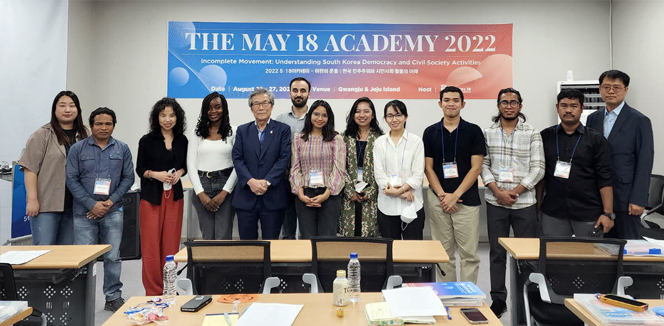Reflections on the May 18th Academy Training
John Carl T. Alonsagay
Philippines, Ajou University
The first two or three days were full of insights. The lectures and presentations about South Korea’s contemporary social issues, its dark path towards achieving full democratization, and its legislation process reinforced by a vibrant civil society sector gave us a good impression of how we can model these systems in our home countries.

I have been to Gwangju twice during my stay here in the country. My participation in previous civil society activities in the city changed my view of democratization and how fragile these civil liberties are, if not guarded and remembered by social institutions and by the people, of course.
Our short visit to Jeju island was also a memorable one. Jeju has always been on my travel bucket list. For foreign students like us, the island has always been considered a place for retreat or leisure but the field trips gave us a different view. We visited one of the largest cemeteries in remembrance of the victims of the Jeju uprising, known in South Korea as the “April 3rd incident”. The visit to the museum and a short lecture from one of the social science researchers in the center was a view changer. It also saddens me the fact that no parties (involved in the atrocities) have issued a formal apology to the people of Jeju, even up to this day.
Most of my peers in our group are people working in the civil society sector or the development field. The training gave us a very insightful and productive experience and a community and network of new like-minded leaders who will bring up the lessons of what South Korea has experienced. We hope that this training program will empower more young civil society leaders not only in Asia but also in the rest of the Global South, where protecting the integrity of democratic institutions is now urgent more than ever. #


